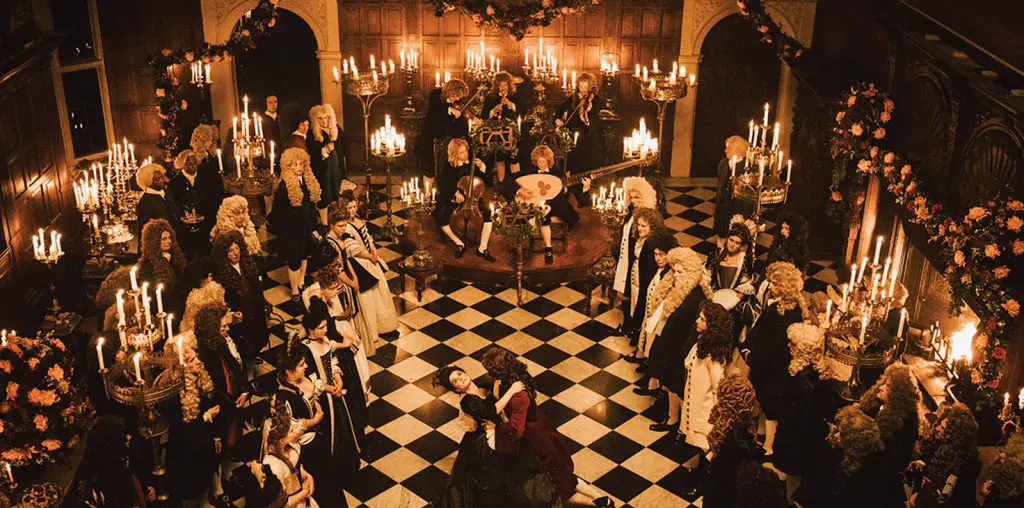
Even at the age of 82, Ingmar Bergman just won’t give up. He keeps writing away. With “Faithless,” an autobiographic script, Bergman looks back at his experiences, and he does so with no mercy. Erland Josephson plays a character named Bergman. Old, lonely, reclusive, seemingly retired, Bergman spends all of his time at his house by the sea. All he has for company are his 16mm projector, his films, and the ghosts of his past. The film often flashes back to an earlier era. Here, Krister Henrickson plays David, a younger, seemingly alter ego of Bergman’s. This guy is quite a loser. He’s a selfish, impatient film director on the verge of bankruptcy. While he tries to get his films off the ground, he has an affair with his friend’s wife, Marriane (Lena Endre). “Faithless,” like vintage Bergman, examines the sins of adultery, and the consequences that result. To some extent, “Faithless” maintains some of the same morose, sadomasochistic tone we’ve come to expect from Bergman, however, its director, Liv Ullmann, 62, gives the film a decidedly feminine perspective.
Having appeared in some of Bergman’s most distinguished films (“Persona”, “Cries and Whispers”, “Scenes from a Marriage”) and directed his script “Private Confessions” in 1997, Liv Ullmann approached “Faithless” fearlessly. Appearing at Lincoln Center’s New York Film Festival last fall, Ullmann discussed the film with enormous enthusiasm. With her tall stature, her blond hair, and her sharp eyes, Ullmann’s presence is distinctive; her tone of voice resounds with confidence. Although all the words in “Faithless” may be written by Bergman, he didn’t want to direct it, she said, citing that age was only one of the factors.
“Bergman is looking for a female voice to help him, voices that a maybe a man doesn’t listen to within himself,” Ullmann said of their unusual partnership. “I don’t only represent myself, but I represent him. It was apparent between us, that when he gave me the script, we wouldn’t be collaborating, we would not meet again for two years.”
After so many years as an actress, Liv Ullmann made her directing debut in 1990 with “Sofia,” based on her own screenplay. She followed in 1995 with another self-scripted film, “Kristin Lavransdatter” before returning to Bergman’s world with “Private Confessions.” The centerpiece of “Faithless” arguably, is Lena Endre’s remarkable performance, which rivals some of those delivered by Ullmann herself. As a director, Ullman indulges in one of the most stylistic components of her mentor – Extreme close-ups of the Female Face. Endre’s face is a landscape, so malleable; she alternates between the sensuality of passion one minute, and the tortured sobs of depression in the next. Like Bergman, Ullmann is a filmmaker who resists sentiment “Faithless”, at heart, is a film about guilt. Ullmann ponders the spiritual, but doesn’t preach to the audience.
Liv Ullman commented on Bergman’s typically misanthropic attitude, “Faithless is the title. We often say Unfaithful, meaning lack of faith in the world. When we say Faithless, that means you have no faith in yourself.” With her direction, Ullman hoped to bring a sunny disposition to Bergman’s written words. Her form of tragedy has a softer edge. “The difficult thing I want is to make people believe they are loved, that there is a grace and a forgiveness, that there is a God… If I live my life as if there are no values, it’s going to be an empty life, a gray life.”
While Ingmar Bergman’s name is iconographic, and his films have inspired generations of filmmakers, getting his work produced is not easy these days. “Faithless” has been a fundraising struggle from its inception to its current release. The film, being distributed domestically by Samuel Goldwyn Films and Fireworks Pictures, is now slowly making its way around the United States. Last year, “Faithless” made its world premiere in Competition at the Cannes Film Festival, where it was greeted with a few raves from the critics, but mostly a lukewarm reaction, and no awards from Luc Besson’s jury.
Cinematically, one of the most fascinating things happening today is the new vogue in Scandinavian cinema. Since Bergman’s last directorial effort “After the Rehearsal” in 1984, a whole new crop of Northern European filmmakers has emerged, all sharing a distinctly raw, uninhibited sense of direction. Not just the films of Lars von Trier, Thomas Vinterberg, and Dogma95, but even those of Lukas Moodysson, Nicolas Wending Refri and Erik Poppe have taken over the festival circuit (i.e. “Dancer in the Dark”, “Celebration”, “F*****g Amal”, “Bleeder”, and “Schpaaa”). These grainy pseudo-documentary styled films stand in sharp contrast to the cold, formalist structured grace of Bergman. Is Ingmar going out of style ?
“Its very difficult today in Scandinavia to find financing” said Ullman. “I praise distributors that take films that they believe in, and stick behind it. In Denmark, they have Dogma, but that’s Dogma.”
Check out FILMTHREAT.com’s FEATURE ARCHIVES and read hundreds of insightful stories, expert analysis, gut-busting satire and caustic commentary!
